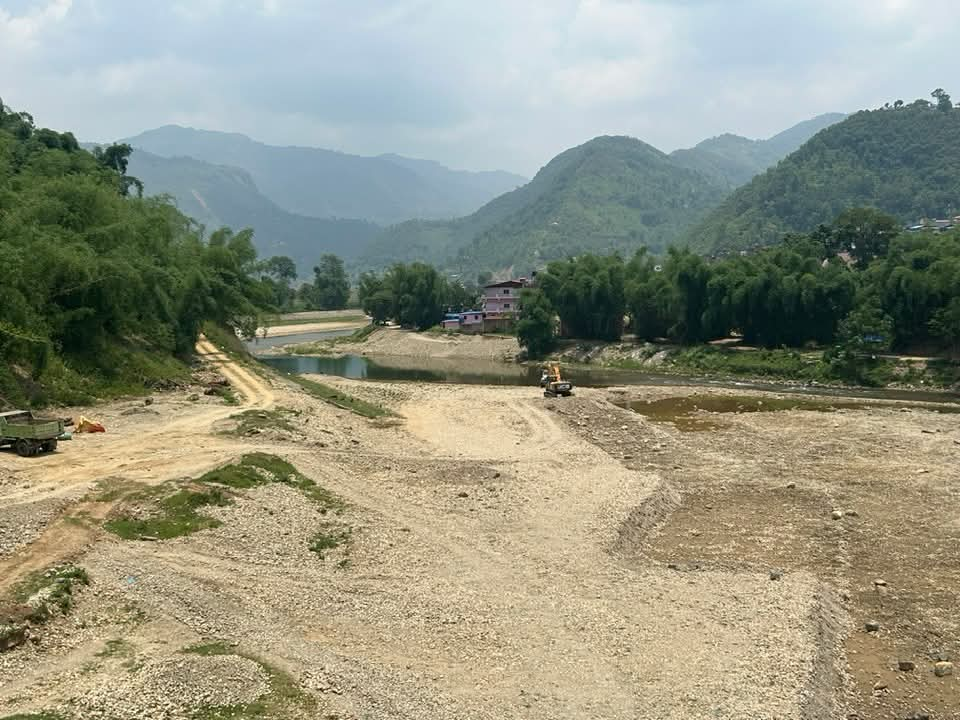Waling, Nepal - Residents of Ward No. 9 in Waling Municipality are facing severe environmental and social challenges as unchecked river excavation threatens their farmlands, homes, and livelihoods. Despite repeated complaints and promises of action, local authorities have failed to address the issue, leaving vulnerable communities at significant risk.
The site of the excavation lies less than 500 meters from a government-funded concrete bridge and directly beneath the iconic suspension bridge—a landmark of Waling Municipality. However, the excavation activities blatantly violate legal and environmental norms. The farmlands of low-income families and settlements around Dhanubanse village have become increasingly vulnerable due to erosion caused by excessive riverbed mining.
Residents report that each year, the river's unchecked exploitation has resulted in significant damage to their properties. Despite multiple appeals to the municipality and even staging protests with banners and placards, they claim their voices remain unheard. Nearly 190 residents recently gathered to demand justice, calling on the mayor to intervene. While the mayor publicly promised to halt excavation activities, heavy machinery, including excavators and bulldozers, was reportedly brought in shortly afterward, exacerbating the destruction.
The municipality's reluctance to share the Environmental Impact Assessment (EIA) report with concerned citizens raises further questions about transparency. Residents suspect the excavation contract has been influenced by local political figures, particularly the chairperson of Ward No. 10, fueling concerns about the misuse of authority.
The local government’s justification for the excavation—that it is part of a disaster management plan to protect the Waling market—has been dismissed by residents as misleading. They highlight that protective embankments exist on the market side of the river, while no such safeguards have been constructed on the Ward No. 9 side, where erosion is most severe.
Experts warn that such unregulated river excavation could lead to disasters similar to those seen in Sunkoshi, Melamchi, and Roshi rivers, where environmental negligence resulted in catastrophic outcomes. The situation in Waling underscores the need for immediate intervention and adherence to environmental laws to prevent further damage.
Residents are demanding an end to river exploitation, compensation for their losses, and accountability from the authorities. The lack of informed consent and transparency has further strained the relationship between the community and local governance, leaving citizens with little trust in the system.
The case of Ward No. 9 is a stark reminder of the consequences of ignoring environmental laws and prioritizing short-term gains over sustainable development. Without immediate corrective measures, the situation could lead to irreversible damage, not only to the environment but also to the lives of the most vulnerable residents.
Call to Action:
The government and concerned agencies must prioritize this issue, ensure transparency, and uphold environmental justice for the residents of Ward No. 9. Only through collaborative and lawful efforts can the ongoing destruction be mitigated and trust restored.